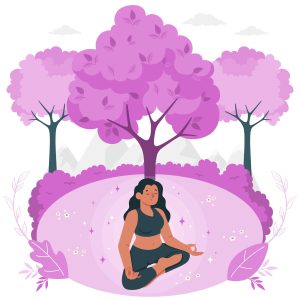
Non-Judgmental Mindfulness: The Key To Happiness
Our daily lives are often filled with judgment. When I say Judgment, I don’t necessarily mean a negative label. I mean, any label. What is

Our daily lives are often filled with judgment. When I say Judgment, I don’t necessarily mean a negative label. I mean, any label. What is

The purpose of this article is to help you be more aware of the nature of your smile through a simple mindfulness practice. Here are

In the hustle and bustle of your daily life, do you find yourself always on the run? Constantly moving from one place to another or from one
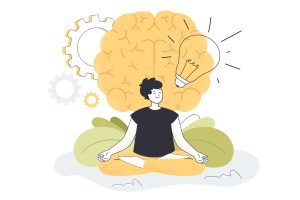
What is mindfulness meditation? Mindfulness is a beautiful practice that helps us become rooted in life. It involves getting our minds back to the present

Often just like any other skill, once people start meditating they try to master meditation. They want to excel at it. They imagine themselves becoming quiet

Okay! So here we come to the end of the Mental Health Week with our last post, and all along we have made it a week of mindfulness for you and for us.
As promised in the last post, we are taking you into somewhat deeper levels of mindfulness since the last two days. In today’s post we will work on mindfulness with emotions and feelings. As in the last six days, we will do a small exercise to help you observe your emotions, mindfully. But before the exercise a little bit more on observing emotions:
How can emotions and feelings be observed?
You know when you are happy, sad, angry, disappointed and so on… Well how do you know? Maybe you will quickly answer “I just know”! But this is mindfulness week remember? We do everything with a pause…so I Invite you to try to not answer immediately! Take a moment and think on how you know what you feel. Think before you go on reading…

We have already discussed in our first post for the mental health week, the exercise of creating present moment awareness through looking, through isolating one sense at a time and focusing on it in order to be mindful, or in the present.
Most of you who have been following the posts this week we are sure are already into the mindfulness groove. Hence for the last two posts for the week, we take you a little deeper into the mindfulness experience. Before I introduce you to today’s exercise, just a little background..
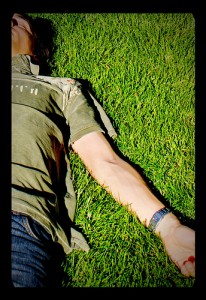
Back with the mindfulness exercise of the day – muscle relaxation. We usually associate mindfulness with relaxation. The idea of serenely experiencing the present, just as it is, without judging or evaluating the moment is soothing and relaxing.
Today, we will take this understanding forward and explain a relaxation technique which is about mindfully watching your body and relaxing it. We’ll call it, Mindful Muscle Relaxation. When most of us say relaxation, we mean relaxation of the mind. Even so, mental relaxation and bodily relaxation are not mutually exclusive. But more on that in a couple of days. For now, in this technique we will exclusively focus on relaxing the body, mindfully. Often our muscles have tensed up even without our knowledge. Pain in the head, back, shoulders is becoming increasingly common. This tension is the body’s way of coping with the continuous onslaught of stress. The body seems to prep up to deal with stress but rarely gets a moment of deliberate intentional letting go. Here is where mindful muscle relaxation can greatly help.
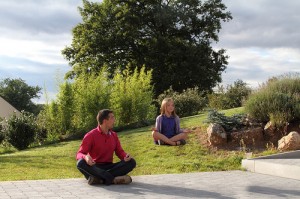
You’ve been reading exercises on mindfulness since 3 days now. Hope you’ve tried some of the tips and techniques we suggested. If you have, you have surely felt some sense of peace while trying what we suggested. Today’s tip is based on mindfulness with children. Can children be trained to be mindful? Would they understand the concept and put it to practice? Yes, they can. If we introduce the concept of mindfulness to children in their way, using elements of their world, they will pick it up, gradually. In fact you’d be surprised to know how mindful children can be!!
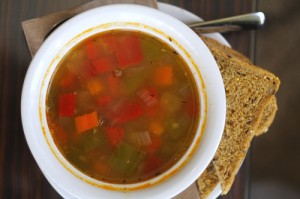
Mindful eating is a mindfulness exercise that sounds too simple to be true. Just think about it, “How can eating be mindful? And how can mindful eating help me in any way?” Let’s try to figure out ways in which food can be helpful in being more than just nutritious.

We specialize in combining psychotherapy with deep wellness practices like mindfulness and meditation and creating a customized mental health plan for individuals and organisations.
We specialize in combining psychotherapy with deep wellness practices like mindfulness and meditation and creating a customized mental health plan for individuals and organisations.

A young woman from another country moved with her family to live for one year in a town near the monastery. When, in the course of the year she discovered the monastery, she would periodically visit to have discussions with the Abbess. The Abbess introduced her to meditation, which became very meaningful for the young woman.
When the family’s year-long stay was drawing to an end, the young woman asked the Abbess, “In my country there is no Buddhism and no one has even heard about meditation. How can I continue to learn and deepen the practice you have started me on?”
The Abbess said, “When you return home ask far and wide for who, among the wise people, is recognized as having the greatest ability to listen. Ask that person to instruct you in the art of listening. What you learn about listening from such a person will teach you how to further your meditation practice.
― Gil Fronsdal, A Monastery Within: Tales from the Buddhist Path